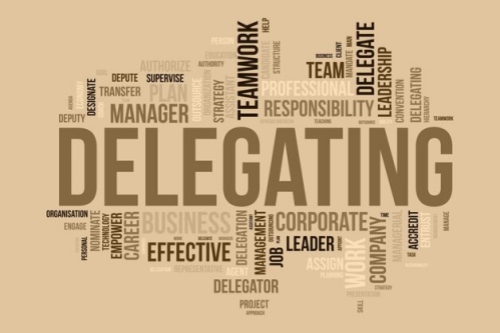The best bosses don’t just load more work on, they subtract things
Companies are used to celebrating addition. Profits, customers and share prices should go up rather than fall. Innovation is the adding of new products. Larger numbers are a measure of career success: managers climb the corporate ladder by taking on more reports, running heftier budgets and trousering bigger salaries. Genuine superstars don’t just add. They multiply. The best software programmers are tagged as “10x developers”, for supposedly being ten times more productive than their peers.
Firms are not always opposed to subtraction. There are good kinds of cuts: carbon emissions, most obviously. Reducing costs is a necessary part of management, though not a welcome one. But the value of doing less is underestimated. The best bosses are those who take things away as well as add them on.
That means clearing time for employees to get work done. Meetings are almost always called by bosses. Some are useful; many of them have all the pizzazz and impact of a speed-awareness course. Shopify, an e-commerce firm, began the year by deleting 12,000 recurring meetings from corporate calendars, and asking everyone to think carefully before reinstating them. The company reports a rise in productivity as a result of the cull.
The only thing worse than having too many meetings is not being invited to them at all. So whenever meetings do take place, surprisingly large numbers of people can turn up. Minus-minded managers will give employees permission not to attend if they are not needed.
By the same token, good bosses will send messages when necessary, not every time a bright idea pops into their head. They will reduce the tempo of work, by leaving employees time to concentrate. They will be clear if something is urgent or not. A recent study by Laura Giurge of London Business School and Vanessa Bohns of Cornell University found that receivers of an email routinely overestimate how quickly its sender expects a reply.

Subtraction is not just about removing day-to-day distractions. It’s also about taking decisions to kill off projects and products that are going nowhere, and to focus efforts on the most important bits of the business. Peter Drucker, the doyen of management theorists, was an advocate of “planned abandonment”, so that resources that are tied up in marginal activities are freed for more profitable use. Executives should, he advised, routinely ask the same question of every aspect of the business: “If we did not do this already, would we go into it now knowing what we now know?”
In “The Case for Good Jobs”, a new book, Zeynep Ton of MIT Sloan School of Management argues that doing less can often make commercial sense. Costco, a well-regarded American retailer that believes in the “intelligent loss of sales”, has a deliberately limited product range. That means it can focus its buying power more effectively, forecast demand more accurately and use its employees’ time more productively.
Less may not sound like a great outcome for customers, but at some point choice is deeply wearying. When you have spent more time trying to decide what to watch on a streaming service than it takes to go to the cinema and watch “Oppenheimer” twice, scarcity seems pretty attractive.
Doing and offering less goes against the grain in many ways. One is how humans are wired. Professor Ton cites a study, published in Nature in 2021 by Gabrielle Adams of the University of Virginia and her co-authors, in which people were asked to think of ways to improve something (like the design of a miniature-golf hole) or solve a problem (such as making the pattern on a grid symmetrical). The researchers found that, without an explicit prompt to think about subtraction, participants systematically defaulted to adding features rather than taking them away.
There are plenty of other hurdles to embracing the minus mindset. The “sunk-cost fallacy” means that managers find it hard to abandon projects that have already soaked up money. Firms are often scared to give up optionality: what if this tiddly new venture turns into the next big thing? Sending emails and filling the calendar is a way to feel busy even if not much of value is getting done.
Recruitment processes and performance reviews reinforce the importance of additive activity; it is unusual for a job candidate to brag about the things they didn’t achieve. But getting rid of work ought to be a vital part of the managers’ toolkit. Add value. Do less.















